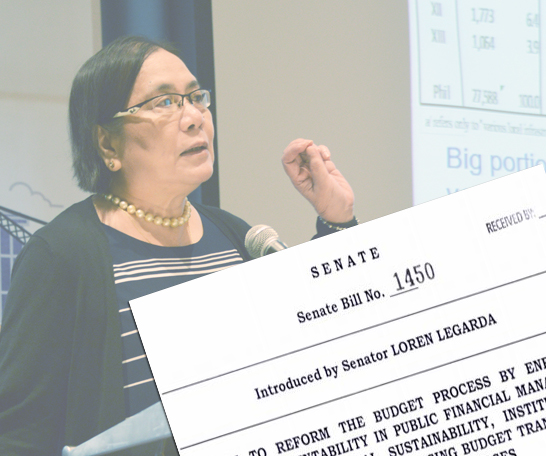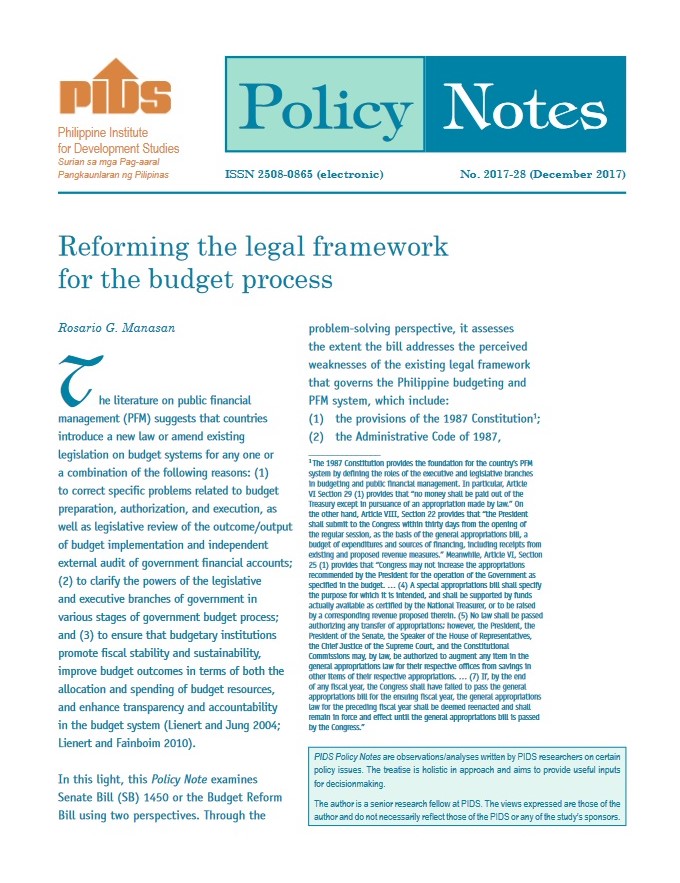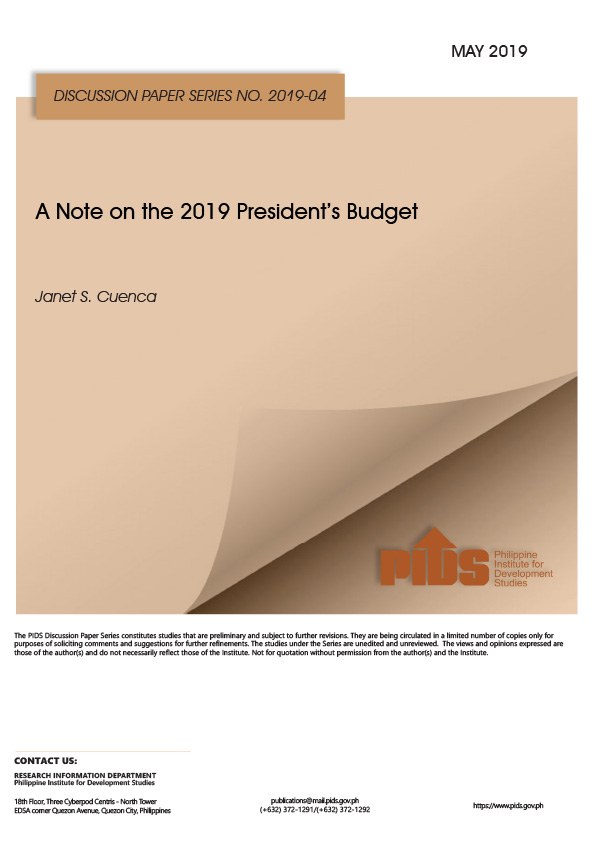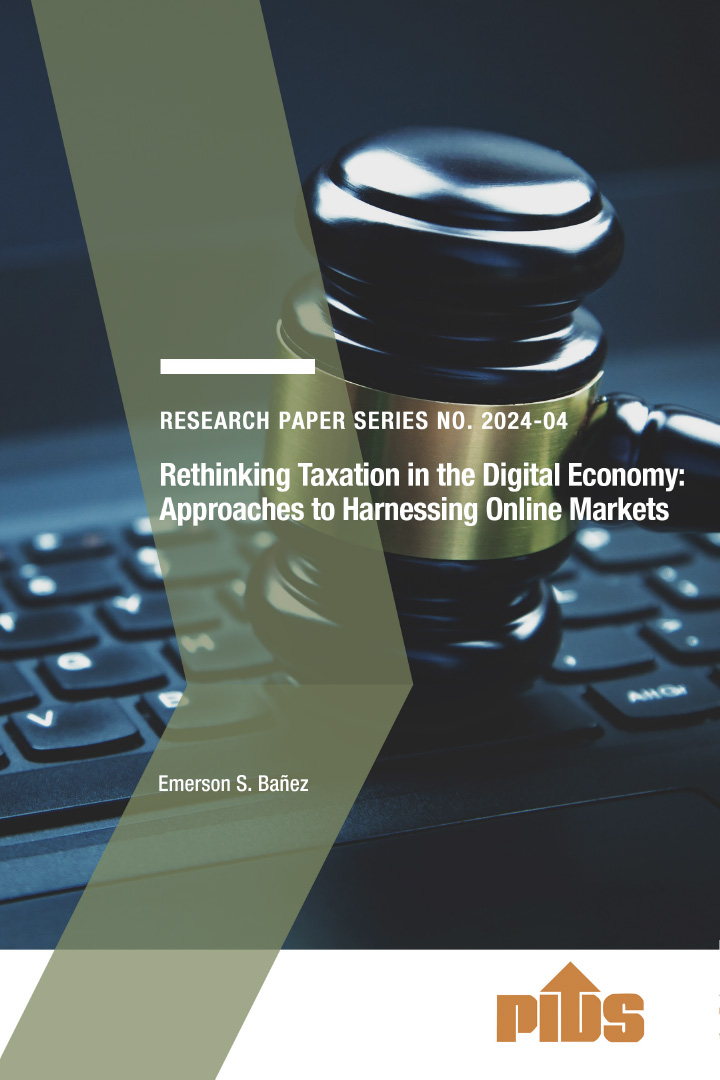
Swinging from a multiyear obligation budget to a cash-based appropriation system might be too radical and disruptive for the country, said public finance expert Dr. Rosario Manasan, a senior research fellow of the Philippine Institute for Development Studies (PIDS).
Manasan stressed this in her policy note that examines Senate Bill (SB) 1450, otherwise known as the Budget Reform Bill. The bill, which is authored by Senator Loren Legarda, seeks to modernize the Philippine budgetary system. SB 1450 limits the validity of the cash-based budget to one year, contrary to the current budgetary practice in the country that allows appropriations and obligations until the next fiscal year, extending the validity of funds to two years.
“While it is important to have an appropriation with a one-year validity, the concurrent shift to a cash-based budget system might be too radical and disruptive a step to take a leap,” she argued.
Manasan explained that under the new proposal, the government can initiate the procurement process short of award (meaning, preprocurement activities such as advertisement of the procurement and/or request for quotation until the postqualification of bids) six months prior to any given budget year at the earliest. Also, this implies that payments can only be made for projects completed within the 12-month period of the given budget year.
Although the bill would allow agencies to settle payments for goods and services delivered during the previous fiscal year within three months immediately following the current budget year, the PIDS expert said that “this is a very tight schedule” given the difficulties of government agencies to fully utilize their programmed budget on public goods and services within the fiscal period.
Given this viewpoint, Manasan urged the author of SB 1450 to “introduce a transitory period of one to two years, upon enactment of the bill into law”.
Moreover, the PIDS fiscal analysis expert opined that the proposed legislation will weaken the role of Congress in the budget process specifically in the treatment of multiyear projects. According to Manasan, Sections 36 and 37 of the bill implies that the “legislative approval of appropriations for multiyear projects will be limited to the approval of cash allocations for single-year payment of said projects, and that the approval of multiyear projects will be the sole prerogative of the executive branch,” in this case, through the Department of Budget and Management.
She also observed that SB 1450 does not have a section pertaining to budget approval and authorization. As a recommendation, Manasan urged that new sections be inserted under the current Part IV of the bill pertaining to budget approval, which she said, “may include provisions on the content of the General Appropriations Act and the prohibition on Congress to increase the aggregate appropriation level beyond the amount proposed by the executive under the National Expenditure Program”. ###
This press release is based on the PIDS policy note, “Reforming the Legal Framework for the Budget Process”.












